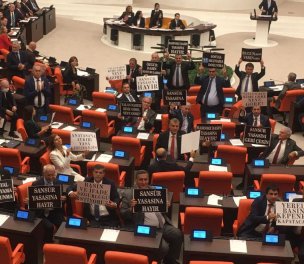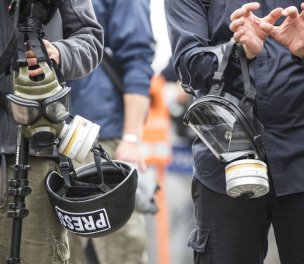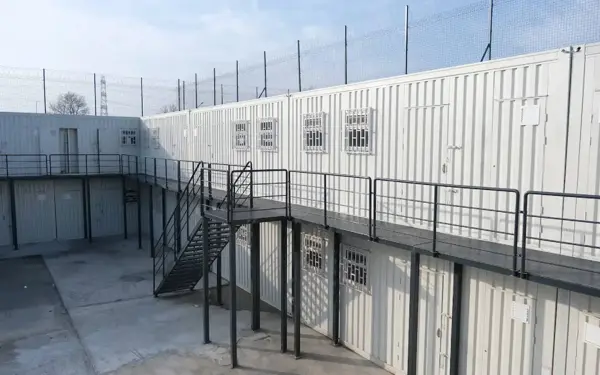Click to read the article in Turkish
The "social media law" was pending for nearly a year. With the ruling Justice and Development Party (AKP) and Nationalist Movement Party (MHP) deputies submitting the bill to the parliament, it turned out to be beyond the expectations. It was a "disinformation bill."
As the Parliamentary Committee on Digital Environments, the secondary committee, passed the bill, the Justice Committee will discuss it on Thursday (June 8).
Journalists, journalist organizations and the opposition have intensely criticized the bill.
But why do journalists oppose the bill?
"It is against press freedom"
Can Güleryüzlü, the head of the Contemporary Journalists Association (ÇGD), said the bill regulates three basic issues for journalists: inclusion of the internet media in the press law, rearrangement of the conditions of receiving a press card and the control of social media.
"Considering that the first independent news site in Turkey started 26 years ago, it's a very late arrangement," said Güleryüzlü.
Noting that they had filed a lawsuit against the press card regulation after the 2018 amendment, Güleryüzlü said the law is against press freedom.
"There were provisions that the Council of State annulled and stayed their execution. Unfortunately, these provisions are embedded in the Press Law within the scope of the new law. What is wanted to be done here is nothing more than increasing the censorship of press cards and journalists.
"The law stipulates prison sentences of one to three years for those who disseminate misleading information. However, this is an article that is not based on legal certainty and predictability. This ambiguity directly qualifies as an attack against freedom of thought and expression.
"The article in question will cause ... many journalists to be put on trial. This is not only about journalists. It will be inevitable to sanction those who share their reactions and views on various events.
"We think that another purpose of this is to bring social media, where people express their reactions, under control before the impending elections."
Tuna: An attempt to silence journalists
Banu Tuna, the İstanbul chair of the Journalists' Union of Turkey (TGS), described the bill as an attempt to silence journalists.
"Just as attempts to suppress and silence civil society with one closure case after another, police raids and detentions," she added.
Ahead of the elections, the government has no tolerance for any dissenting voice, she said.
"They are trying to silence all dissident sections of society. For this reason, it's not only about the press, it's about everyone who defends press freedom."
"The media close to the government blatantly publishes fake news every day. they commit hate crimes, they mark people as targets," she said, adding that the authorities remain silent against these crimes.
"How can those who hide the truth can detect disinformation?"
Erol Önderoğlu, the Turkey representative of the Reporters Without Borders (RSF), said the new law "takes more rights from journalists than the rights it brings" and the government is using the "carrot and stick" method.
It is very problematic to process issues like personal rights, press cards and official announcements and "disinformation" together, he said.
It was an attempt to "tame" online media platforms where there is alternative and critical reporting. If the bill passes, the simplest political objection in the media would be "deleted" by the judiciary, which is under the influence of the ruling power, he added.
"How can those who hide the truth and suppress its expression with every kind of means can diagnose disinformation?" (HA/VK)





.jpg)


sa.jpg)









